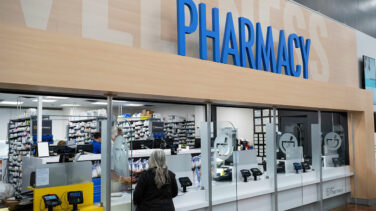Doctors Doc
Oncologists Are Top Social Media Users
A new report from OneKey Digital, a Cegedim Company, titled “Physicians Active in Digital and Social Media,” found that oncologists are one of the most active specialists on social media. Approximately 54,500 unique practitioners were monitored to better understand their social media use with a focus on three specialties: cardiology, endocrinology and oncology. Oncologists had the highest level of social presence at 37.2% followed by endocrinologists (35.7%) and cardiologists (29%). Oncologists were also the most likely of the three to actually engage with others through social media.
Overall, social media transactions involving HCPs has increased sharply over the last few years. In 2010, there were 6,738 total transactions while through August 2012 there have been 16,517. Blogs are overwhelming the leading social media channel with an HCP presence or transaction (see chart). Meanwhile, YouTube was the second most popular channel; however, it is important to note that monitoring was limited to publicly available information, so it was difficult to track sites like Facebook where a password is required—though it does seem like all three specialists preferred professional networks to social ones.
Marketers should plan on adjusting their promotion strategies based on a HCP’s social preference. For example, HCPs active in social media are 4% less likely to see a sales rep and 8% less likely to accept a sample at their office.

DC Dispatch
More Oversight For Compound Pharmacies?
The deadly meningitis outbreak linked to the New England Compounding Center (NECC) has brought back an old debate: Do compounding pharmacies need to be federally regulated? In case you have not heard, steroid injections produced by the NECC contained fungal meningitis that caused 25 deaths while more than 330 people across the U.S. have also been infected. The Senate Committee on Health, Education, Labor and Pensions (HELP) is investigating the outbreak to determine whether any criminal charges need to be made and if further federal regulation is required.
Compounding pharmacies, such as the NECC, typically fill specialty orders made by doctors for individual patients. However, over the last 20 years, some of these pharmacies have become larger businesses that supply bulk orders to hospitals or other organizations. For the most part, these pharmacies are regulated by state pharmacy boards with the FDA only stepping in when major issues are revealed.
After an investigation last month, the FDA revealed that there were dozens of rooms in the NECC that contained bacteria and mold where drugs were being produced. Furthermore, the company had been aware of the presence of this mold, but there is no evidence that it took any action. Meanwhile, others, such as advocacy group Public Citizen, are criticizing the lack of effort from the FDA. In the past, the agency has considered several compounding pharmacies to be drug manufacturers—which does fall under its responsibility—yet the FDA is failing to take blame in this instance. The HELP investigation hopes to prevent other such pharmacies from falling through the cracks.
Telemed Texts
Preventative Medicine Goes Social

Social media can provide more than just a network to stay up-to-date on your friend’s personal lives or to connect with fellow professionals—it can be used to proactively improve your health. Alliance Health Networks has several social engagement platforms aimed to help people along their health journey, but its latest addition is aimed specifically at baby boomers. In partnership with Life Line Screening, the companies have launched Lifelong Health (www.lifelonghealth.com), a social network for people over the age of 45 who want to maximize their health as they age. According to Edison Research, Americans in this age group have increased their social media use by 7% from 2011.
The goal of Lifelong Health is to educate people about the value of preventative medicine and tests, such as vascular ultrasounds and laboratory screenings. People can share experiences, read about the latest products and post their own recommendations as well as have discussions about other health-related topics. “Having worked so hard throughout their lives, our community members are focused on enjoying life to the fullest, and we share that goal,” says Colin Scully, Chairman and CEO of Life Line Screening. “By paying attention to our health, we all hope to live the longest, healthiest lives possible.”
Trend Setting
More Innovative Drug Delivery Needed
The future of pharmaceutical research and development is in finding new ways to improve drug delivery, according to a survey commissioned by Capsugel and conducted by Nice Insight, an independent market research company. The survey of 500 pharmaceutical industry influencers revealed that 82% believe that innovative dosage form technologies are the solution to many of the industry’s R&D challenges. In fact, three-quarters of respondents are already actively investigating new ways to improve their current products by adding drug delivery functionality. These innovative drug delivery methods include patient-centric dosing, combination therapy and controlled release options.
However, 58% feel the need to outsource dosage form development. This is especially true when it comes to technologies related to poorly soluble compounds, such as lipid drug delivery, where half of respondents plan to outsource the development of these technologies. “This survey provides critical insights into R&D needs in terms of dosage innovation and outsourcing decisions today and in the future,” says Nigel Walker, Managing Director of Nice Insight. “This type of understanding is fundamental to interpreting the innovation likely to be required to meet evolving patient-centric dosage needs driven by healthcare trends.”
FDA Update
New Electronic Review
The FDA has released a draft guidance document (http://1.usa.gov/Tp9GRW) for the eCopy Program, its new digital medical device submission system. The program will require certain manufacturers to upload a digital copy of their submission along with the standard print copy. The purpose of the program is to expedite the review process as the electronic submission is immediately ready for review. The guidance is not yet final, but the system will come into effect 24 months after the FDA does release the final guidance.
Drugs with Societal Benefit
According to Bloomberg, the FDA is considering a faster approval process for obesity treatments, life-saving antibiotics and other drugs deemed to offer societal benefit. The agency would let the manufacturers of these treatments conduct faster trails with a smaller group of patients. Upon approval, the drugs would be given a “special medical use” label that would allow doctors to prescribe them to patients in the most need. For now, the process remains hypothetical as the agency tries to work out the details.
Court Forces FDA Approval
The U.S. District Court for the District of Columbia has ordered the FDA to approve Watson Pharmaceuticals’ generic version of the diabetes treatment Actos (pioglitazone hydrochloride). Under the 1984 Hatch Waxman Act, the FDA is supposed to give 180 days of market exclusivity to the first company to introduce a generic equivalent, but in this case a shared exclusivity agreement was struck between Watson, Teva and Mylan in 2010. However, in August 2012, the FDA approved Teva’s and Mylan’s applications for the generic while denying Watson’s. Watson then filed suit against the FDA challenging this decision and last month the court ruled in favor of the drug company.





